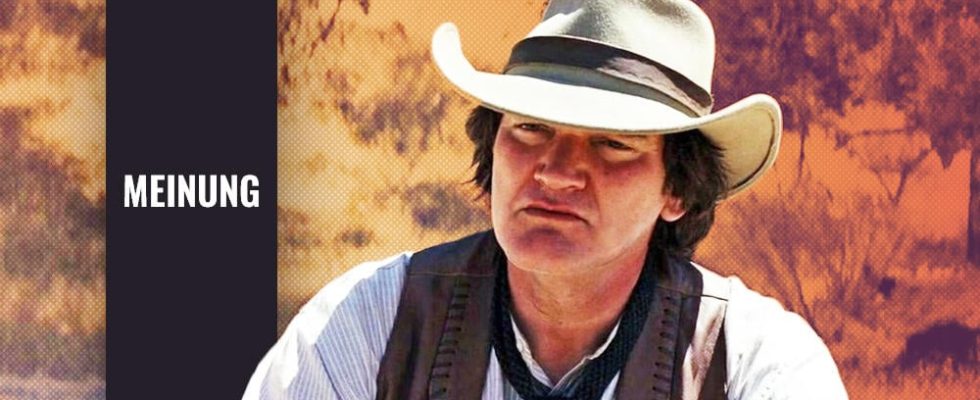Few directors enjoy the cult status of Quentin Tarantino. Practically every new film by the cinema nerd with a penchant for cool characters, casual dialogue, pop music and ultra-violence is celebrated as a masterpiece. Also Django Unchained, which is the director’s most successful film to date with worldwide box office earnings of 425 million dollars.
For me, the crudely entertaining spaghetti western homage, for which Tarantino also won the Oscar for Best Original Screenplay, his weakest film – for two reasons.
Django Unchained can’t decide between serious and fun
For Django Unchained, Tarantino mixes historical facts from one of the darkest chapters of US history with his typical pop-entertaining style. But that is exactly what becomes the biggest problem for the film.
Serious scenes like the tough, cruel Mandingo fight on Calvin Candie’s (Leonardo DiCaprio) estate alternate with a comedy scene like the oversubscribed Ku Klux Klan attack. It doesn’t work like a sketch foreign body stuffed into the film.
Sony
A foreign body in the film: the Ku Klux Klan scene
Before that, Inglourious Basterds balanced serious moments and funny, exaggerated interludes much more coherently. With Django Unchained, the director can’t decide whether he wants to deliver a serious contribution to the subject of slavery in the USA or rather ignite the typical Tarantinoesque action-comedy fireworks.
In the subsequent film, The Hateful 8, he did a much better job of once again shedding light on a dark chapter in America. In it, unlike Django Unchained, he has his trademarks of coolness and staged gimmicks scaled back for more mature, down-to-earth storytelling.
Towards the end, the overly long Django Unchained no longer finds its rhythm
Django Unchained was the longest Tarantino film to date, running at 165 minutes. That’s not a point of criticism at first, but the director jumps more and more off track dramaturgically.
Check out Yves’ video ranking of all Tarantino films here:
From garbage to masterpiece: we rank all Quentin Tarantino films
When Candie finally found Dr. King Schultz (Christoph Waltz) is shot dead, Django Unchained explodes in a bloody action climax. Only then the film continues for more than half an hour!
When Django (Jamie Foxx) falls into slave captivity again, fights his way back to Broomhilda, exacts revenge on Stephen (Samuel L. Jackson) (and survives an embarrassing Tarantino cameo), the film works like a dramaturgically frayed sequence of deleted scenes.
After the death of Tarantino’s longtime editor Sally Menke, Django Unchained’s director had to rely on someone else in the editing room for the first time. Maybe it’s also because the strip has the bumpiest rhythm of all his films.
It’s as if Tarantino himself didn’t quite know where he wanted to take his spaghetti westerns after his most explosive action sequence. This is due to the script itself, but also to the lack of support from a more focused cutwhich shows the cult director limits.
Instead of a boundless masterpiece, Tarantino has delivered his weakest film here.
*. . .
